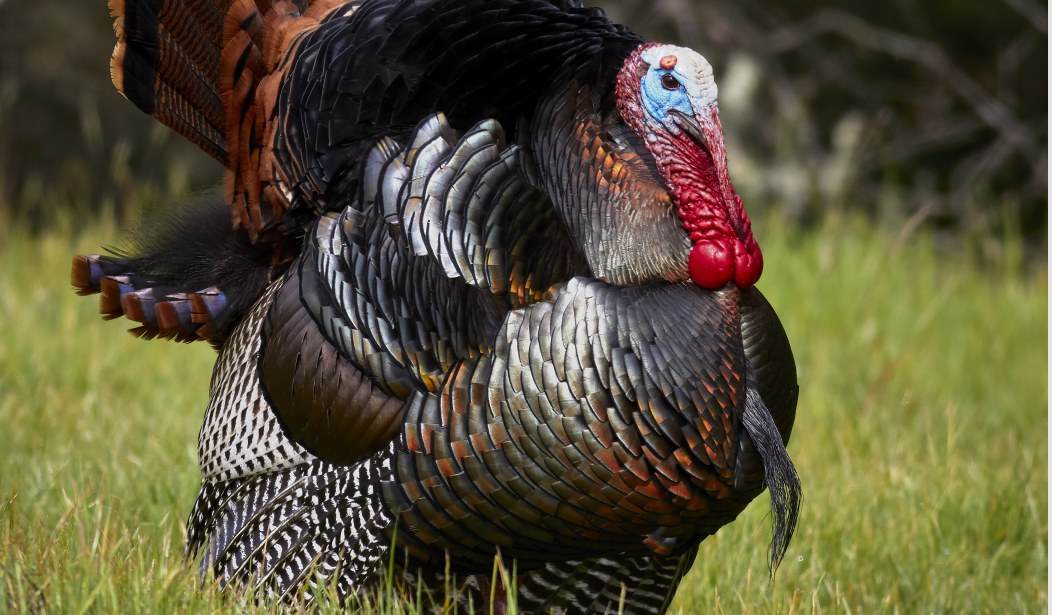If this was a planned, coordinated effort by wild turkeys to shut off power to Sacramento residents, maybe as a practice run for larger efforts in the future, then one has to admit that it was poultry in motion.
A wild turkey got caught in the power lines in Sacramento, Calif. on Christmas Eve — leaving more than 4,000 homes and businesses without power as Santa Claus came around.
“There was a turkey in the line that crews are working to repair quickly and safely,” a spokesperson for the Sacramento Municipal Utility District (SMUD) told the Sacramento Bee.
The utility reported that 4,248 customers lost power at around 12:15 p.m. on Sunday following the bird strike.
About 20 minutes later, a community group wrote online that they were receiving reports about people losing power.
“The power is out in parts of South Land Park. It’s been on and off again,” the South Land Park Neighborhood Association posted on X.
“Fingers crossed this doesn’t ruin holiday meals and festivities.”
Having a power outage on Christmas Even seems like it's certainly going to fowl up the holiday for everyone affected.
The problem here is one of wildlife management. Turkeys, it turns out, do very well living in semi-wooded areas near human habitations. In areas where they aren't hunted - like towns - they don't learn to view people as a threat, and so just see them as either a nuisance or something to be chased away.
Turkeys have wreaked havoc on the Sacramento area for years, as almost every part of the state faces a burgeoning wild turkey population, according to the Bee.
The wild animals have broken into homes and businesses, gobbled at cars in the middle of traffic and even terrorized Amazon deliverers and mail carriers to the point where one postal carrier clubbed a turkey to death last year.
Wild turkeys aren't at all like their domestic counterparts. This is a bird that has eyesight roughly equivalent to a human using 8X binoculars and hearing that is comparable. They can weigh up to 22 pounds, can run 30 miles an hour, and have lightning reflexes. The toms are territorial and can be aggressive, especially in the spring breeding season. If they aren't afraid of you, well, unlike a mountain lion or a bear, they may not want to gobble you up, but they can sure make a nuisance of themselves.
In areas where they are hunted, like the Allamakee County, Iowa of my youth, they are wary of humans and can be one of the most challenging hunts in North America; as a young man I spent a lot of time in those northeast Iowa woods hunting both white-tailed deer and gobblers, and I can tell you I enjoyed much greater success hunting deer. For one thing, if a deer detects something out of the ordinary, about one time in three it will be curious and sometimes even move in closer, trying to figure out what is going on; a turkey, detecting anything unusual, will sound the alarm and speed-shift into high gear; they run more often than fly and taking one is no simple turkey shoot.
Management would seem to be the answer for California; encourage people to put some roast wild turkey on the table. Are birds in more densely populated areas causing a problem? Open it up to hunters with archery tackle. Give landowners some latitude to deal with troublemaking fowl on their property.
We've seen too many examples lately of wildlife causing people and their pets headaches, sometimes quite literally, and it's usually becaause of some failure on the part of humans, either through stupidity or poor management. It's about time that humans in places like Sacramento re-discover a little of their hunter-gatherer past, and show these turkeys who is boss.















Join the conversation as a VIP Member